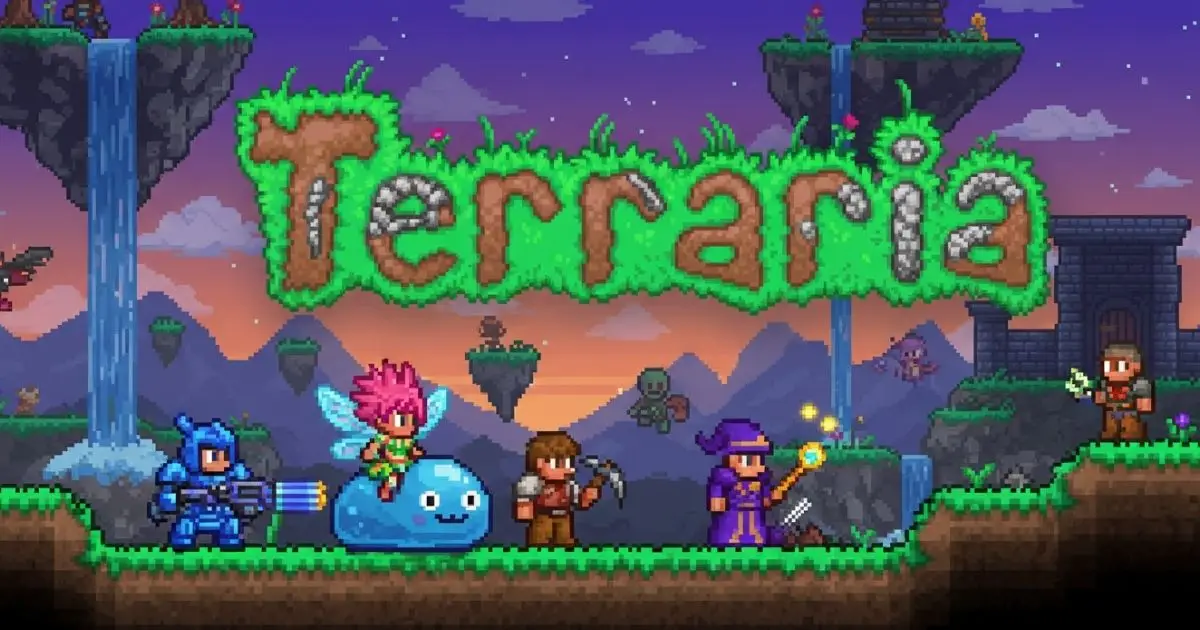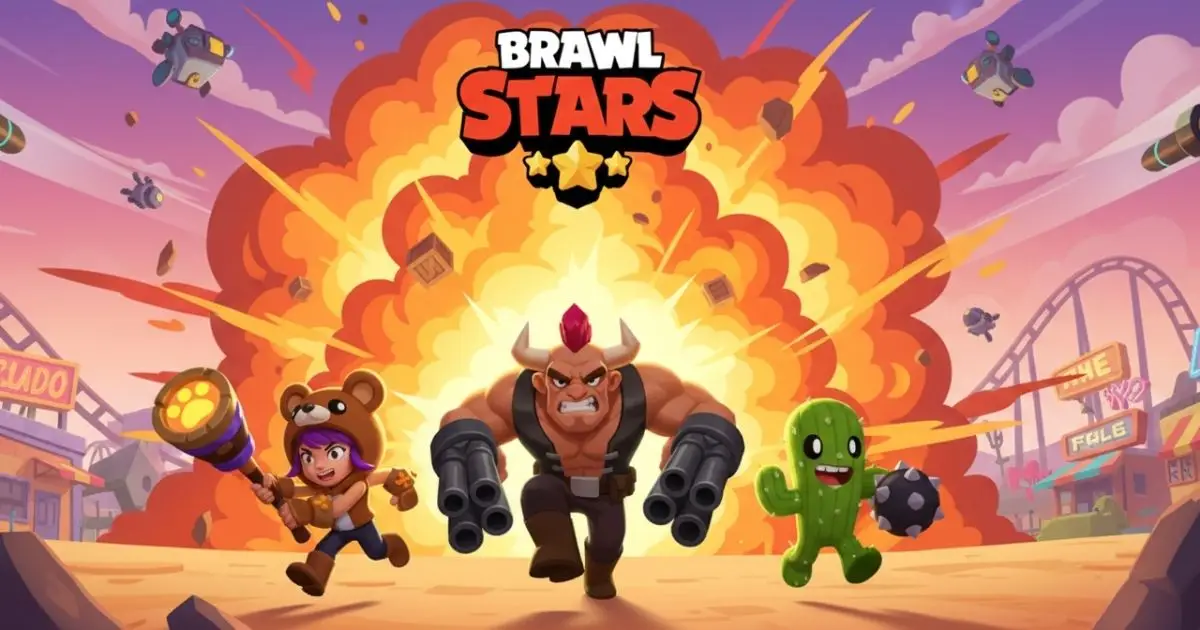ANÚNCIOS
Com milhões de jogos para celular inundando as lojas de aplicativos todos os anos, encontrar o jogo perfeito para suas preferências de jogo pode ser uma tarefa árdua. Seu jogo para celular ideal não é necessariamente o título mais popular ou com a melhor avaliação – é aquele que combina perfeitamente com a forma como você gosta de jogar, quando gosta de jogar e o que você espera da sua experiência de jogo.
ANÚNCIOS
Entender seu próprio DNA gamer é o primeiro passo para descobrir jogos mobile que vão te cativar por horas, em vez de acumular poeira digital depois de algumas sessões. Vamos explorar como identificar seu estilo de jogo e combiná-lo com as experiências perfeitas de jogos mobile.
Compreendendo sua personalidade gamer
Cada jogador tem preferências únicas que moldam sua experiência de jogo ideal. Alguns jogadores anseiam por competição intensa e pela adrenalina de superar oponentes humanos. Outros preferem aventuras solitárias, onde podem explorar em seu próprio ritmo, sem pressão externa.
Sua personalidade gamer vai além das preferências competitivas e cooperativas. Considere se você gosta de sistemas complexos que exigem aprendizado profundo e domínio, ou se prefere jogos que sejam imediatamente acessíveis, mas que ofereçam ganchos de progressão a longo prazo.
ANÚNCIOS
As preferências de investimento de tempo também desempenham um papel crucial na seleção de jogos. Alguns jogadores adoram jogos que recompensam o engajamento diário e o comprometimento a longo prazo, enquanto outros querem experiências que possam desfrutar em curtos períodos sem se sentirem atrasados ou perdidos.
Pense na sua relação emocional com o desafio e o fracasso. Você se sai bem com jogos difíceis que testam seus limites ou prefere experiências mais relaxantes que proporcionam feedback positivo consistente? Não há resposta errada, mas compreender esse aspecto da sua personalidade o guiará em direção a escolhas de jogos mais satisfatórias.
Analisando seu tempo de jogo disponível
Seu estilo de vida e sua agenda influenciam significativamente quais tipos de jogos para celular funcionam melhor para você. Se você tem uma agenda lotada, com apenas breves momentos para jogar, vai querer títulos que ofereçam progresso significativo em sessões curtas, sem exigir compromissos de tempo prolongados.
Quem se desloca para o trabalho costuma se beneficiar de jogos que podem ser pausados instantaneamente e retomados posteriormente sem perda de progresso ou contexto. Jogos de quebra-cabeça, jogos de estratégia por turnos e experiências offline para um jogador se destacam nessas situações, pois não exigem atenção constante ou conexão com a internet.
Jogadores com agendas mais flexíveis podem gostar de jogos que oferecem experiências mais profundas, exigindo sessões mais longas. MMORPGs, jogos de estratégia complexos e aventuras com narrativas complexas podem proporcionar entretenimento mais substancial, mas precisam de blocos de tempo dedicados para serem verdadeiramente divertidos.
Considere também o seu ambiente de jogo. Se você joga principalmente em ambientes silenciosos, jogos com muita história e elementos sonoros importantes são opções viáveis. No entanto, se você costuma jogar em ambientes barulhentos ou em situações onde o som não é prático, jogos com foco visual podem ser mais adequados.
Preferências de jogos competitivos vs. casuais
Jogadores competitivos prosperam com interações jogador contra jogador, sistemas de classificação e a satisfação de aprimorar suas habilidades contra oponentes humanos. Títulos de eSports para dispositivos móveis como PUBG Mobile, League of Legends: Wild Rift e Clash Royale proporcionam experiências competitivas intensas com sistemas de classificação robustos.
Esses jogos geralmente exigem um investimento significativo de tempo para se manterem competitivos, à medida que a base de jogadores melhora constantemente e as metaestratégias evoluem. Eles recompensam a habilidade mecânica, o pensamento estratégico e a dedicação à melhoria por meio da prática e do estudo.
Jogadores casuais geralmente preferem experiências que proporcionem relaxamento e entretenimento sem o estresse da competição. Jogos de quebra-cabeça para um jogador, construtores de cidades e aventuras com foco em história oferecem uma jogabilidade envolvente sem a pressão de competir contra outros jogadores.
Jogos multijogador cooperativos podem preencher a lacuna entre preferências competitivas e casuais. Títulos que permitem que você trabalhe em conjunto com amigos ou desconhecidos em busca de objetivos comuns proporcionam interação social sem o estresse da competição direta.
Experiências baseadas na história versus experiências focadas na jogabilidade
Alguns jogadores priorizam narrativas envolventes e o desenvolvimento de personagens acima de tudo. Visual novels, RPGs com histórias ricas e jogos de aventura atraem jogadores que desejam vivenciar histórias envolventes por meio de mídias interativas.
Jogos focados em história geralmente apresentam diálogos extensos, opções de personalização de personagens e narrativas ramificadas que respondem às escolhas do jogador. Essas experiências podem proporcionar profundidade emocional e envolvimento que vão muito além do simples entretenimento.
Jogadores focados em jogabilidade preferem títulos onde a mecânica, os sistemas e a habilidade do jogador têm precedência sobre os elementos narrativos. Jogos de ação, quebra-cabeças e experiências estilo arcade enfatizam controles precisos, objetivos desafiadores e domínio mecânico.
Muitos jogos mobile de sucesso combinam ambas as abordagens, oferecendo ciclos de jogabilidade envolventes, apoiados por personagens interessantes e construção de mundo. Encontrar o equilíbrio certo depende das suas preferências pessoais e do que você considera mais envolvente no entretenimento interativo.
Modelos de jogo grátis vs. premium
Entender os modelos de monetização ajuda você a escolher jogos que se alinham com suas preferências de gastos e valores de jogo. Jogos gratuitos oferecem acesso imediato, mas frequentemente incluem microtransações, anúncios ou sistemas de progressão projetados para incentivar os gastos.
Alguns títulos gratuitos implementam monetização justa, com compras meramente estéticas ou convenientes sem afetar o equilíbrio da jogabilidade. Outros empregam táticas mais agressivas que podem tornar a progressão frustrante sem gastar dinheiro.
Jogos premium exigem pagamento antecipado, mas geralmente oferecem experiências completas sem pressão adicional de monetização. Esses títulos geralmente oferecem experiências de jogo mais focadas, sem sistemas projetados para estender o engajamento além do valor principal do entretenimento.
Considere seu nível de conforto com microtransações e se você prefere pagar uma vez por uma experiência completa ou potencialmente gastar pequenas quantias ao longo do tempo. Ambos os modelos podem oferecer excelente custo-benefício quando combinados com jogos e hábitos de consumo adequados.
Preferências gráficas e técnicas
Os recursos do seu dispositivo e suas preferências pessoais em relação à qualidade gráfica influenciarão quais jogos oferecem a melhor experiência. Smartphones de última geração podem rodar jogos com gráficos intensos, com ambientes 3D complexos, efeitos de partículas e iluminação avançada.
No entanto, jogos exigentes costumam consumir a bateria rapidamente e podem causar aquecimento do dispositivo durante sessões de jogo prolongadas. Considere se você prioriza o espetáculo visual ou prefere sessões de jogo mais longas com requisitos gráficos mais modestos.
Uma direção de arte estilizada costuma envelhecer melhor do que gráficos realistas e pode parecer impressionante mesmo em dispositivos mais antigos. Jogos com forte visão artística frequentemente proporcionam experiências visuais mais memoráveis do que títulos que simplesmente desafiam os limites técnicos.
A estabilidade da taxa de quadros geralmente é mais importante do que a fidelidade gráfica bruta para o prazer do jogo. Controles suaves e responsivos aprimoram todos os aspectos da experiência de jogo, enquanto o desempenho inconsistente pode tornar até mesmo jogos simples frustrantes.
Considerações sobre jogos sociais
Suas preferências em jogos sociais impactam significativamente quais títulos proporcionarão satisfação a longo prazo. Alguns jogadores gostam de compartilhar experiências com amigos por meio de jogos cooperativos, sistemas de guilda ou competições amigáveis.
Jogos multijogador geralmente proporcionam engajamento prolongado por meio de vínculos sociais e experiências compartilhadas. No entanto, também podem criar pressão para manter horários de jogo consistentes ou acompanhar o progresso dos amigos.
Experiências de jogo solo permitem controle total sobre o ritmo e a progressão sem pressões sociais externas. Jogos single-player permitem pausar, repetir seções ou fazer pausas sem afetar a experiência dos outros jogadores.
Considere se você quer jogos que facilitem novas conexões sociais ou prefere experiências que você possa desfrutar com amigos já existentes. Alguns títulos são excelentes para apresentar jogadores a novas comunidades, enquanto outros funcionam melhor para manter relacionamentos existentes.
Exploração e descoberta de gênero
Não se limite a gêneros familiares, especialmente em plataformas mobile, onde os desenvolvedores costumam experimentar mecânicas de jogo híbridas e esquemas de controle inovadores. Os jogos mobile criaram subgêneros únicos que não existem em outras plataformas.
Experimente jogos fora das suas preferências habituais ocasionalmente. Plataformas móveis tornam a experimentação de baixo risco por meio de opções gratuitas e promoções frequentes de títulos premium. Você pode descobrir novos favoritos em gêneros inesperados.
Preste atenção aos jogos que combinam vários gêneros com sucesso. Muitos dos títulos mobile de maior sucesso combinam elementos de diferentes estilos de jogo para criar experiências inovadoras que agradam a diferentes preferências dos jogadores.
Leia análises e assista a vídeos de gameplay antes de investir tempo significativo em novos títulos. Entender a mecânica principal e os sistemas de progressão de um jogo com antecedência ajuda a garantir um melhor alinhamento com suas preferências.
Fatores de engajamento de longo prazo
Pense no que mantém você engajado nos jogos por longos períodos. Alguns jogadores gostam de mecânicas de coleção, sistemas de progressão de personagem ou atualizações sazonais de conteúdo que oferecem objetivos e recompensas contínuos.
Outros preferem jogos com desfechos naturais que proporcionem conclusões satisfatórias sem exigir investimento de tempo indefinido. Entender sua preferência por experiências de jogo contínuas versus experiências de jogo finitas orienta a seleção de títulos mais adequados.
Os jogos de serviço ao vivo oferecem conteúdo em constante evolução, mas podem gerar pressão para manter o engajamento regular e evitar perder eventos por tempo limitado ou ficar para trás nos sistemas de progressão. Avalie se essa estrutura aumenta ou diminui sua diversão no jogo.
Experiências completas com pontos finais definidos permitem que você termine os jogos completamente e avance para novas experiências sem sentir que está abandonando o progresso em andamento ou perdendo conteúdo futuro.
Tomando a decisão final
Depois de entender suas preferências de jogo, pesquise cuidadosamente os títulos em potencial. Leia várias análises, assista a vídeos de gameplay e verifique o histórico dos desenvolvedores para obter suporte contínuo e atualizações de conteúdo.
Comece com opções gratuitas ou demos, quando disponíveis, para testar a mecânica de jogo e a experiência geral antes de investir dinheiro ou tempo significativo. A maioria dos jogos revela seu apelo principal na primeira hora de jogo.
Não tenha medo de desinstalar jogos que não te agradam imediatamente. O armazenamento em dispositivos móveis é limitado e sempre há novos títulos para explorar. Encontrar o jogo perfeito para celular pode exigir experimentar várias opções.
Lembre-se de que suas preferências podem mudar com o tempo. Reavalie periodicamente seus hábitos de jogo e explore novos gêneros ou estilos de jogo. O cenário dos jogos para dispositivos móveis está em constante evolução, oferecendo novas experiências que podem atender aos seus interesses e estilo de vida em constante mudança.
Escolher o jogo ideal para dispositivos móveis se resume, em última análise, a uma autorreflexão honesta sobre suas preferências, estilo de vida e objetivos de jogo. Reserve um tempo para entender o que você realmente gosta em jogos e use esse conhecimento para guiar sua exploração do vasto cenário dos jogos para dispositivos móveis.






